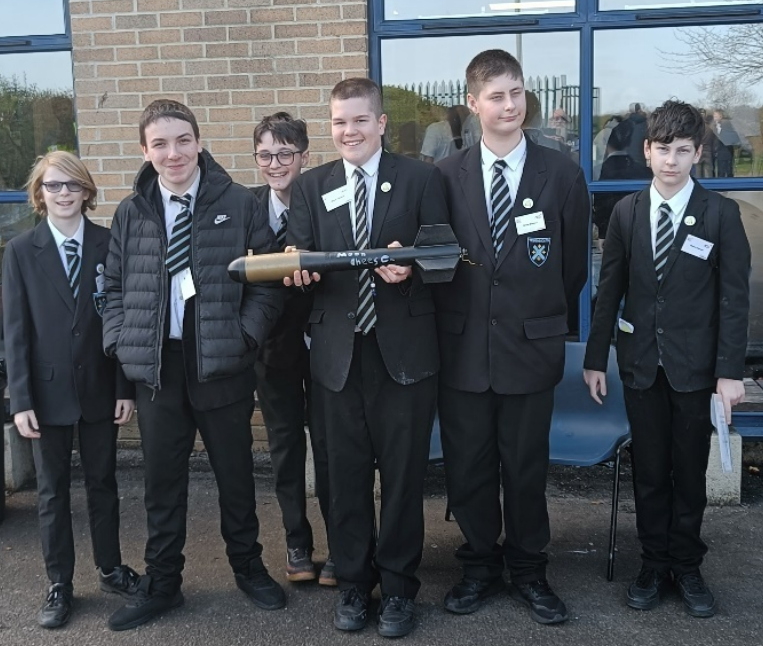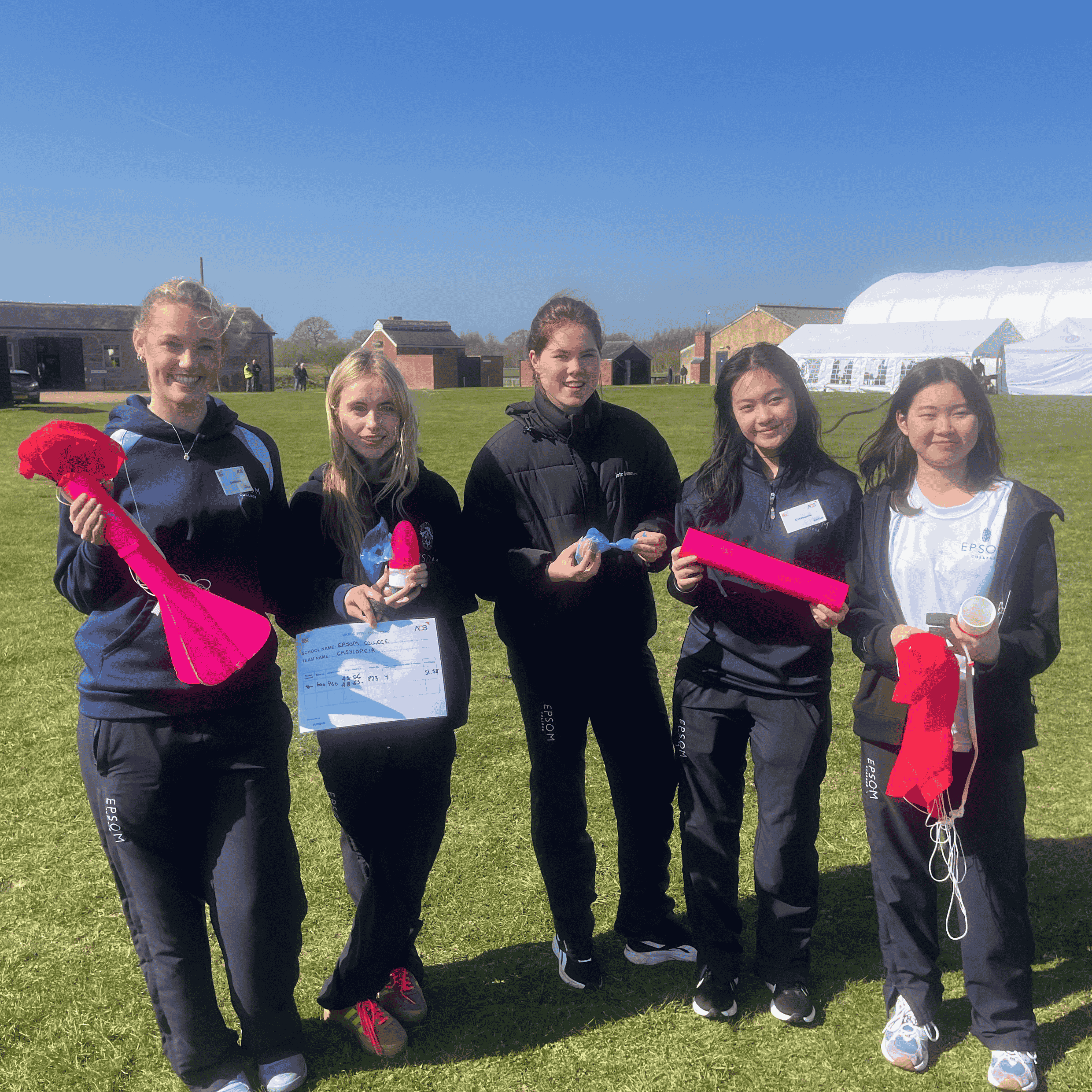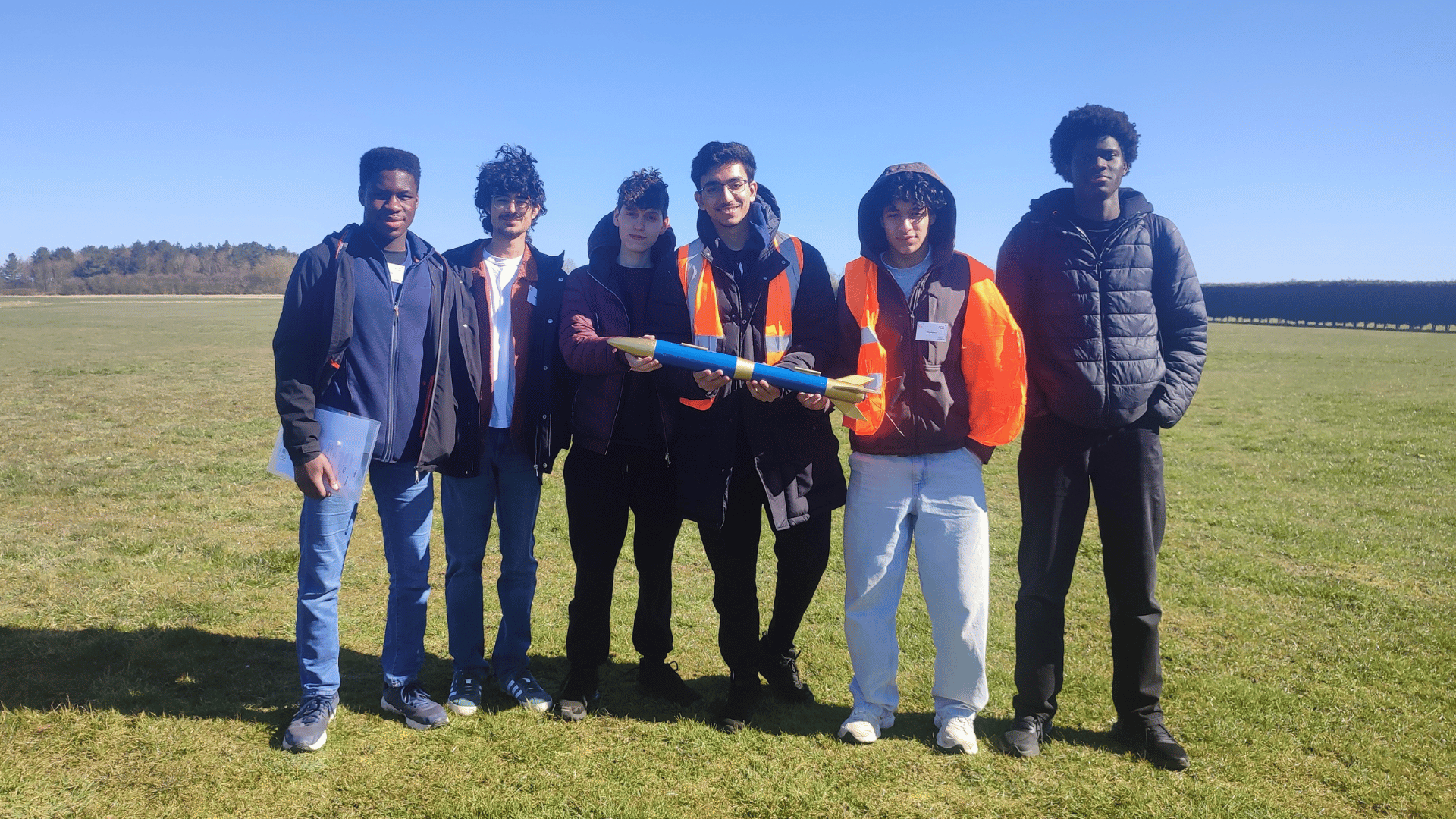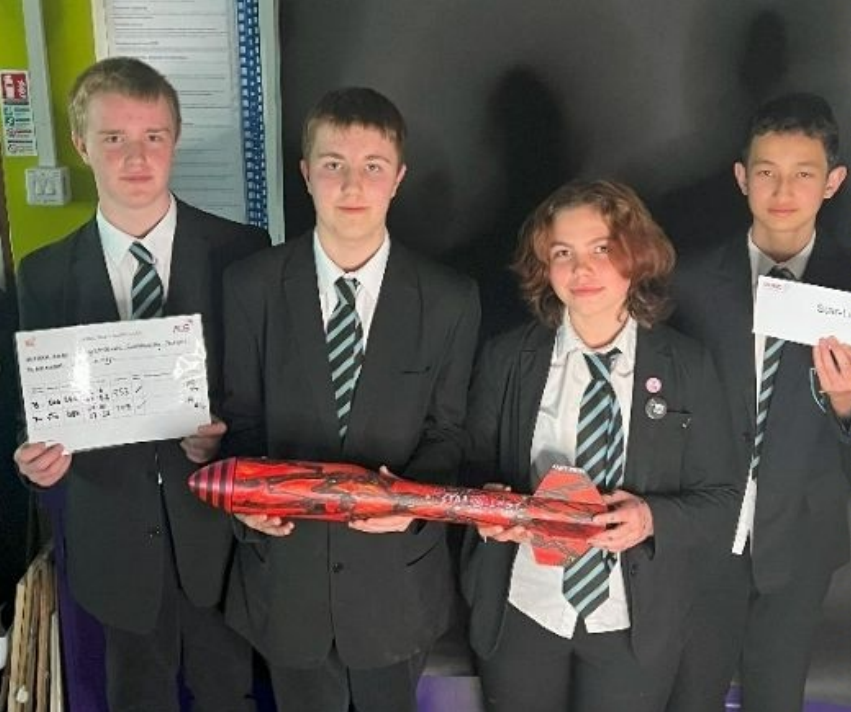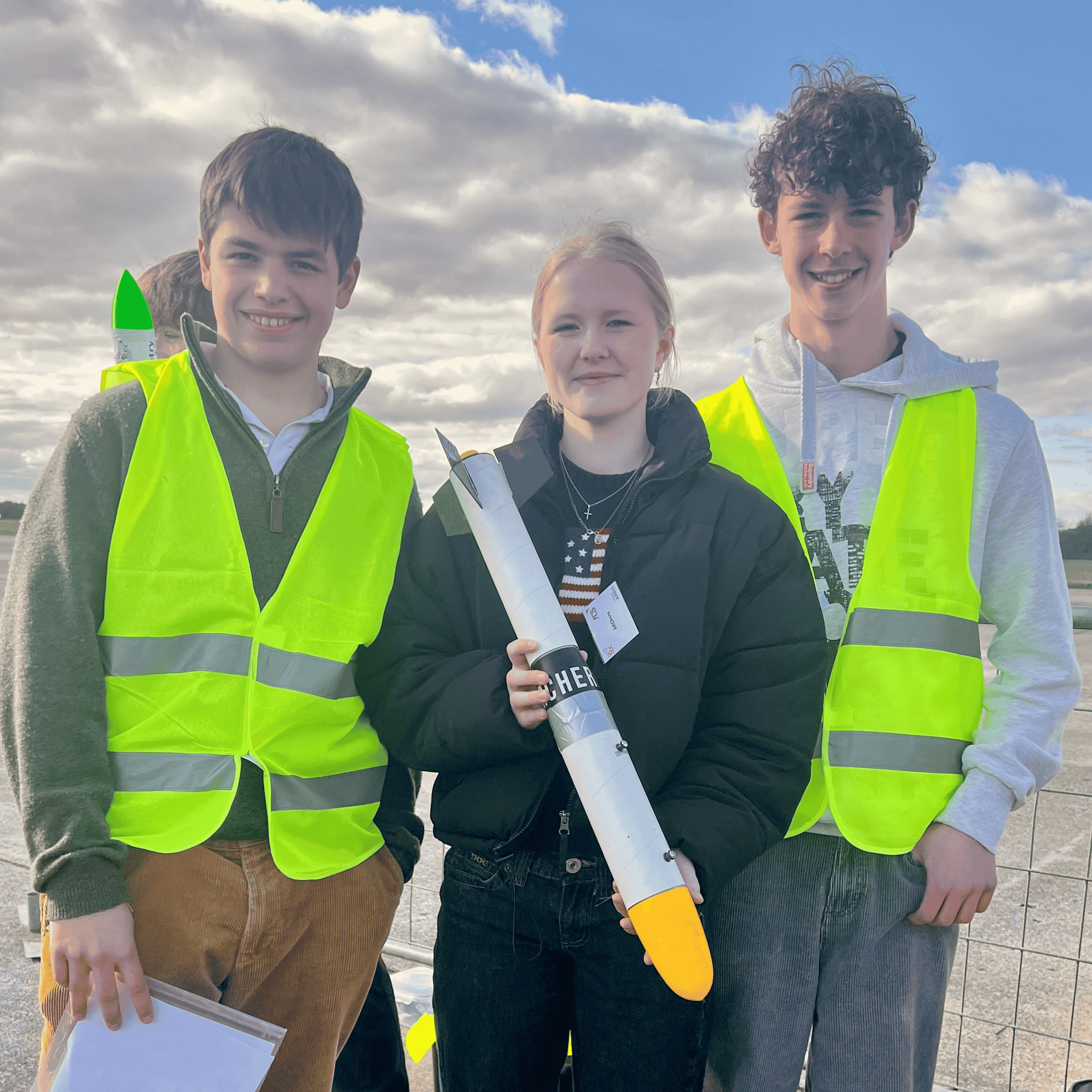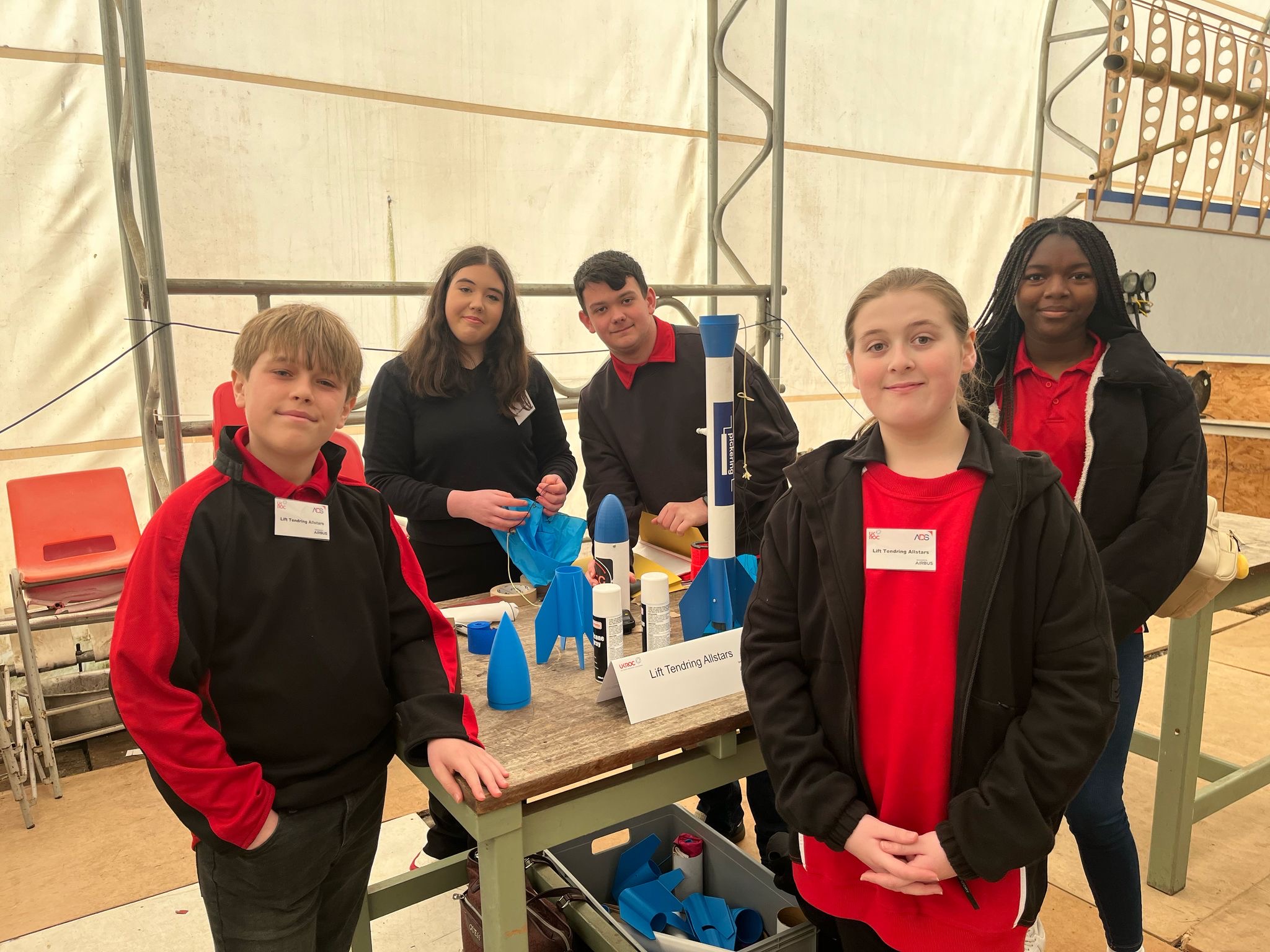In the lead up to the National Final we are doing a “Meet The Teams” series. Over to Team MOONCHEESE…
Intro
- Team name – MOONCHEESE
- School/club – Teignmouth Community School
- Region/location – Devon
- Team leader – Jake (year 8)
- Teammates – Oliver (year 8), Jacob (year 8), Alfie (year 8), Max (year 8) and Austin (year 7)

From left to right: Austin, Jake, Oliver, Alfie, Jacob, Max
What have you enjoyed the most about UKROC?
Jake: I have enjoyed a lot about the UKROC project. Specifically, launching the rockets and seeing them launch. Some of the launches were ‘great’ to say the least… I found out about this project when I first joined rocket club in 2023, and Mr. Hawker told us about the competition. Our rocket design is based off the Ariane rocket, giving it a wider top body tube compared to the lower body tube. Our fins were changed to a trapezium shape after what I call “The 1100 Feet Incident.”
Oliver: One thing I have enjoyed about UKROC is the skills it teaches you, like how to use OpenRocket and CAD to design the parts of the rocket. This club has helped me to work better in a team.
Jacob: There are lots of things I have enjoyed about the UKROC project, one being working as a team to learn how to design and build our rockets and problem-solving. It doesn’t always go to plan, but the best bit is launching our built rocket and waiting to see if it will launch with no issues!
Alfie: This is my second year of participating in the UKROC competition and I have loved being a part of this. It has really helped my confidence and I enjoy getting to be a part of this with my friends. I have learnt a lot about building rockets and hope that we can continue to do well in the next stage of the competition.
Max: I have enjoyed the competitions the most and actually getting to see our rocket that we designed and
built doing well.
Austin: I have really enjoyed learning about the different parts of the rocket that are needed to make it successful and learning how to put it all together. My favourite moment was watching the first ever launch
of our rocket. I saw posters around my school just after I started Year 7 and really wanted to be involved in
the club. I’m the youngest in the team!
Would you encourage other teams to enter the competition?
Jake: I would definitely recommend joining Rocket Club, especially if you’re interested in rockets, science, or engineering. It’s a great opportunity to be a part of something exciting.
Oliver: I would recommend joining Rocket Club as it is fun and you are learning at the same time.
Jacob: I would definitely recommend other teams to enter. It’s my first year doing this and I have had so much fun, learnt new skills, and learnt how to use different pieces of equipment. I also had the experience of seeing other teams compete with their rockets.
Max: If it’s something you’re interested in, then I would definitely recommend it. You learn lots while having fun.
Austin: I would encourage other teams to enter the competition because it’s so fun and having more teams to compete against makes it more exciting.

Why did your school/club want to get involved in UKROC?
We first became involved in UKROC through an email from one of the mentors who lived locally. I (teacher) responded because I had enjoyed making rockets with my children when they were young and thought it would be a great way to get youngsters involved with model rocketry. It’s a unique opportunity for students to apply STEM skills in a hands-on, real-world context. UKROC gives them the chance to learn design and engineering principles while experiencing the excitement of building and launching something they’ve created themselves.
What does the teacher/club leader think about UKROC?
I’ve been genuinely impressed with the impact UKROC has had on our students. They’ve developed technical skills in software like OpenRocket and Fusion 360, but just as importantly, they’ve learned how to work as a team, tackle challenges together, and stay motivated through setbacks and we have had a few of those! Watching their rockets launch — whether they go perfectly or not — is a huge moment of pride for everyone involved. UKROC gives students a reason to push themselves and shows them what they’re capable of achieving.
Want to share your experience? Email us ukroc@adsgroup.org.uk.

